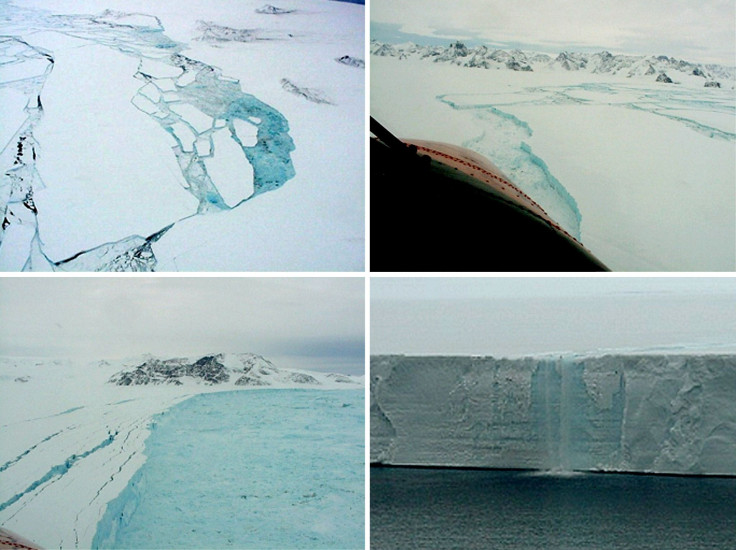10,000-Year-Old Antarctic Ice Shelf Could Disappear Before Decade's End, NASA Study Finds
In 2002, two-thirds of the Larsen B Ice Shelf, located along the east coast of the Antarctic Peninsula, collapsed in a span of less than six weeks. According to a new NASA study, the remains of this ancient structure, which has existed for over 10,000 years, are likely to disintegrate completely before the end of the decade -- an event that would significantly contribute to global sea level rise.
“These are warning signs that the remnant is disintegrating,” Ala Khazendar from NASA's Jet Propulsion Laboratory in Pasadena, California, who led the study, said in a statement. “Although it’s fascinating scientifically to have a front-row seat to watch the ice shelf becoming unstable and breaking up, it’s bad news for our planet.”
Several recent studies have spotted an uptick in the melting of Antarctica’s floating ice shelves, which act as doorstops and hold back its glaciers and ice sheets from spreading outward into oceans. In some regions, the thickness of these shelves has fallen by as much as 18 percent over the past 18 years -- a process that has accelerated over the last decade.
According to the predictions by Khazendar’s team, which used the data collected as part of NASA’s Operation IceBridge, widening cracks along the shelf’s grounding line would eventually lead to the Larsen B remnant breaking off completely from the Peninsula. This free-floating chunk -- about 625 square miles in area and about 1,640 feet thick at its thickest point -- would then shatter into hundreds of smaller icebergs.

“What is really surprising about Larsen B is how quickly the changes are taking place,” Khazendar said in the statement. The fastest moving part of the Flask Glacier, one of the shelf’s tributary glaciers, had accelerated 36 percent between 2002 and 2012. “Change has been relentless,” he said.
According to some estimates, if Antarctica’s ice sheet melts completely, it would raise sea levels by over 200 feet -- enough to flood the planet's land masses. Although this is not something that is likely to happen anytime soon, the latest observation is one of the many pointing toward a warming trend on the continent.
© Copyright IBTimes 2024. All rights reserved.






















